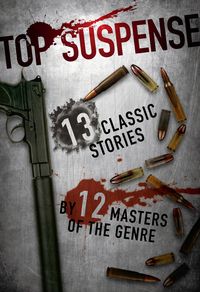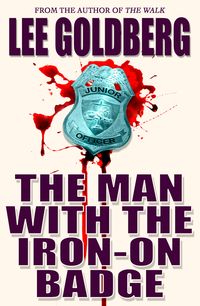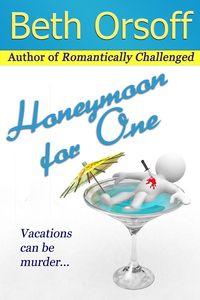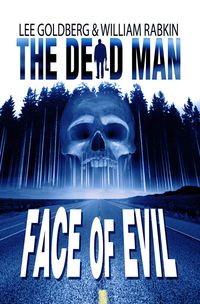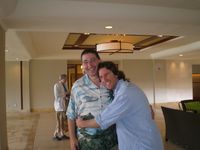 My friend, the huggable spy, Barry Eisler has announced that he's walking away from a $500,000 advance from St. Martin's Press to self-publish his books. Eisler explains his thinking in a long and fascinating interview with — who else? — his buddy Joe Konrath:
My friend, the huggable spy, Barry Eisler has announced that he's walking away from a $500,000 advance from St. Martin's Press to self-publish his books. Eisler explains his thinking in a long and fascinating interview with — who else? — his buddy Joe Konrath:
I know it’ll seem crazy to a lot of people, but based on what’s happening in the industry, and based on the kind of experience writers like you are having in self-publishing, I think I can do better in the long term on my own.[…]I’m not the first example, though I might be a noteworthy one because of the numbers I’m walking away from. But there will be others, more and more of them.
He's right. Just a few weeks ago, Terrill Lee Lankford made headlines by rejecting a high, five-figure deal. By now, the publishers must be doing so much head-scratching that they have no scalps left.
But the reason established authors are doing the previously unthinkable — saying no to big-money advances — is simple. In exchange for that advance, the publisher is, essentially, buying the book out-right and forever (since it's unlikely to ever go "out of print" with the advent of ebooks) and yet are only offering a 25% royalty on ebooks.
But ebooks cost almost nothing to produce. There's no printing, no warehousing, no distribution. The only costs are editing, formatting, and cover art. So why give authors so little? The truth is, what the author will get is even less than 25%, as Barry and Joe explain:
Barry: […] a 25% royalty on the net revenue produced by an ebook equals 17.5% of the retail price after Amazon takes its 30% cut, and 14.9% after the agent takes 15% of the 17.5%.
Joe: Yeah, that 25% figure you see in contracts is really misleading. Amazing, when you consider that there’s virtually no cost to creating ebooks–no cost for paper, no shipping charges, no warehousing. No cut for Ingram or Baker & Taylor. Yet they're keeping 52.5% of the list price and offering only 17.5% to the author. It’s not fair and it’s not sustainable.
Which is why we are going to see more and more A, B and certainly C-list writers opting to forgo publishing contracts in favor of self-publishing.
Where does this leave print publishers? Domestic print publication will become for an authors a nice ancillary market, much the way audio and foreign editions are now, where limited rights are sold for a negotiated fee. The benefits would be distribution to brick-and-mortar stores (those that are still left). Or perhaps, as one blogger predicted, a retailer like WalMart or B&N might make exclusive deals with authors to sell the print editions in their stores.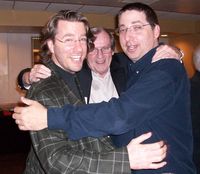
But even in that negotiation, authors will have strong, self-publishing alternatives to help them leverage the best possible deal.
I found that out for myself this weekend. I was astonished to find the CreateSpace print editions of my self-published ebooks available for sale at the Virginia Festival of the Book alongside my Penguin-published MONK books…and being gobbled up by readers.
The readers saw no difference between my self-published novels and my published ones (granted, I hired a professional cover artist and formatters, so they looked very slick). But I am seeing a difference: much higher royalties and more money in my pocket. And if I, a mere mid-list author, is seeing that, imagine how much better a guy like Barry could do.
But you won't have to imagine it. Soon you will be able to see it for yourself. Barry's new John Rain novel, The Detachment, will be self-published by Father’s Day. My prediction — it will be a huge Kindle bestseller.



